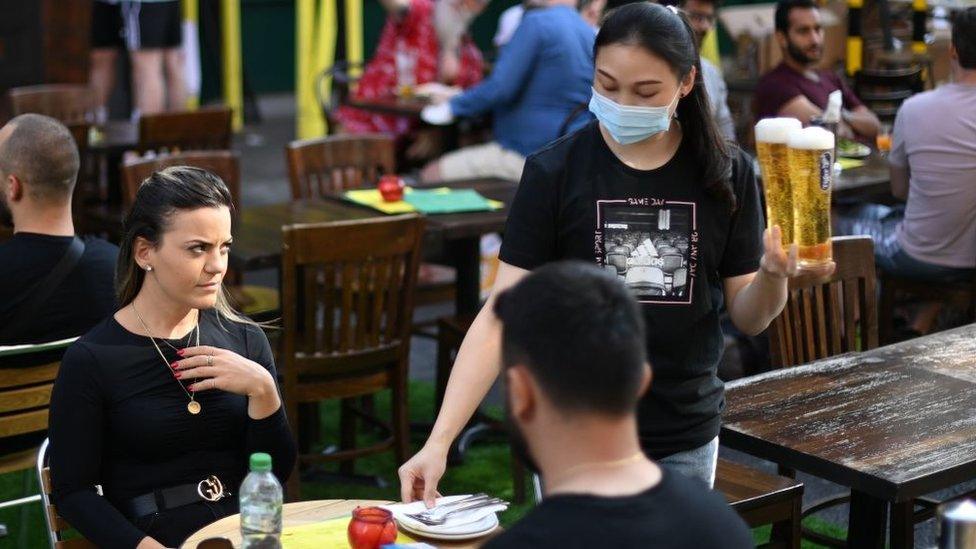Coronavirus restrictions are extended across NI
- Published
- comments
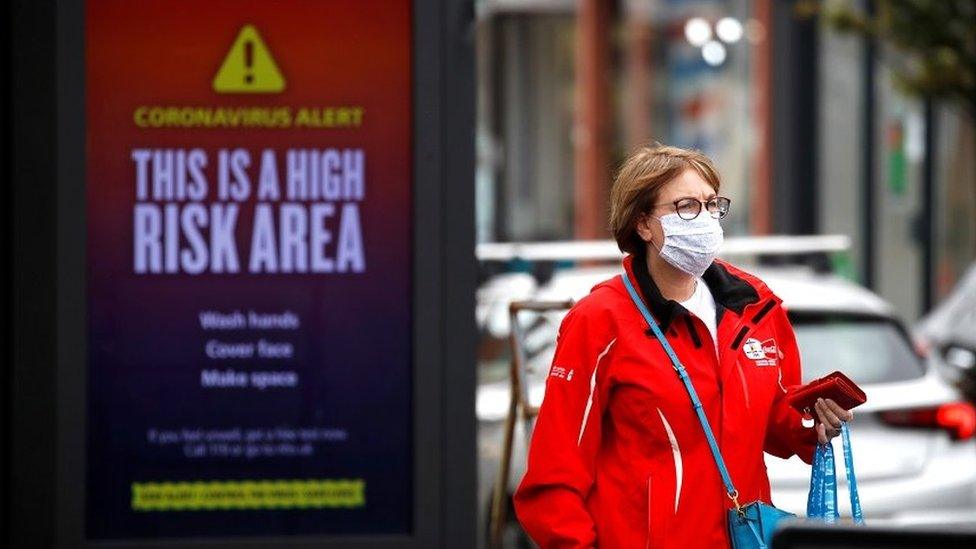
Covid-19 restrictions are to be extended to all of Northern Ireland from 18:00 BST on Tuesday, the Stormont Executive has announced.
There will be no mixing of households indoors with some exceptions, and no more than six people from two households can meet in a garden.
The move followed an urgent meeting of the Executive on Monday afternoon.
In the last seven days, more than 1,000 people have tested positive for Covid-19 in Northern Ireland.
First Minister Arlene Foster said "this is not a return to lockdown", but "doing nothing is not an option".
She added: "The restrictions are limited and we are in a better place than at the height of the pandemic."
Mrs Foster told the briefing that Northern Ireland is now dealing with outbreaks in every county and without action there was a real risk of increasing spread.
She said it could lead to increasing hospitalisations and deaths.
Deputy First Minister Michelle O'Neill said the fact that over 1,000 cases were recorded across the island of Ireland at the weekend should act as a "wake-up call to everyone".
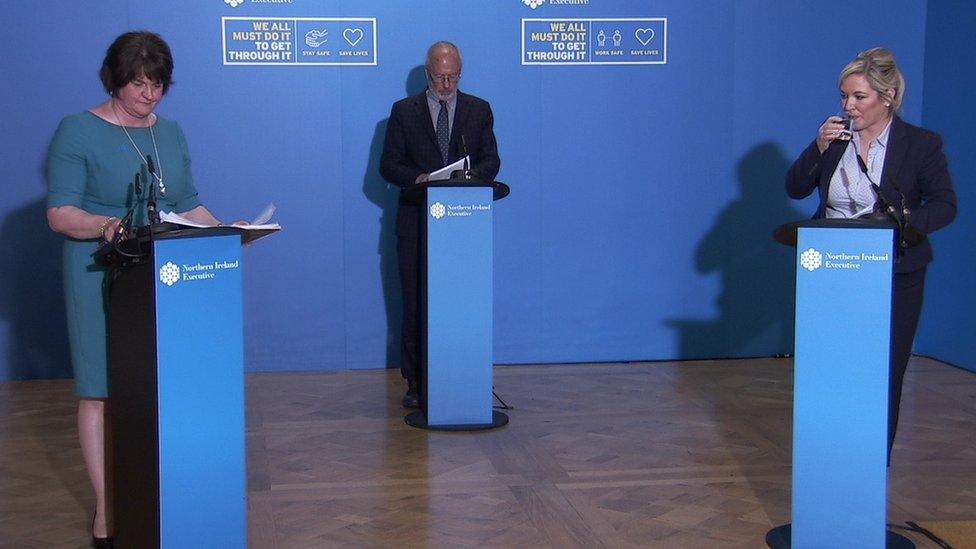
The First Minister Arlene Foster said it is not a return to lockdown
"We have between two to three weeks from now to suppress substantial transmission, otherwise we risk even more cases by mid-October," she said.
"The data is showing very clearly that the number of areas of concern are multiplying very rapidly."
A further two coronavirus-related deaths were recorded by the Department of Health over the weekend.
According to the Department of Health dashboard, external, another 125 new positive cases have been recorded since Sunday.
Thirty-three people are currently in hospital, with five in intensive care.
In the Republic of Ireland 188 new cases of coronavirus were reported in the past 24 hours. No deaths were recorded there.
'Not lockdown'
The new restrictions mean there will be no mixing of two households indoors except for single-person household bubbles and certain other exemptions such as for caring responsibilities and visits for legal or medical purposes.
No more than six people from two households can meet in private gardens.
First Minister Arlene Foster said the executive is trying to bring in restrictions in a graduated way.
"We will keep a very close eye on this virus and how it is continuing to spread," she said.
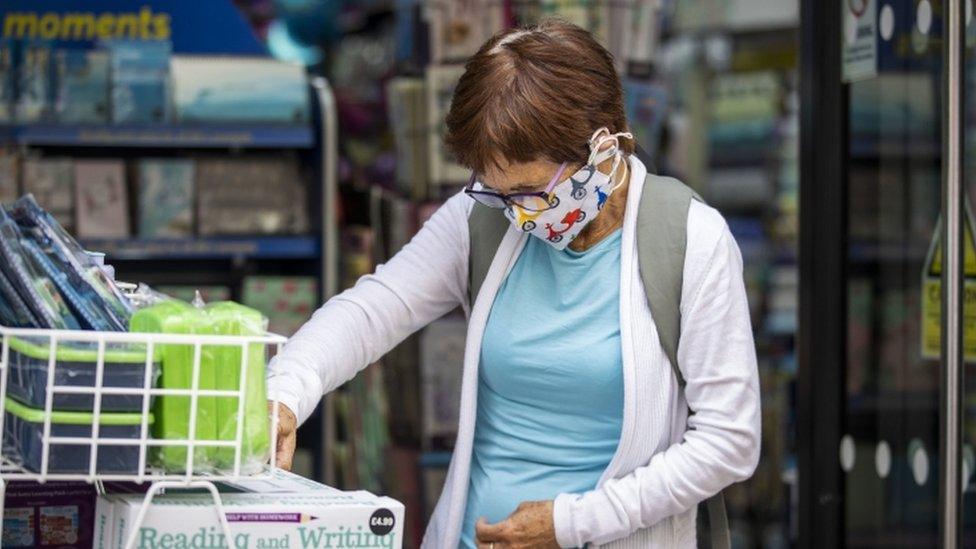
The new restrictions announced on Monday do not require businesses to close their doors
The Chief Scientific Adviser Professor Ian Young said there has been some evidence of a reduction of cases in Ballymena following local restrictions there.
"So we do have some evidence that the measures may be effective and it will take a little longer to see their full effect in other areas," he said.
He also said Northern Ireland is now averaging well over 100 new cases per day and the percentage of positive tests is also increasing.
He told the briefing, the R rate, which is how quickly the virus spreads, is currently at 1.4 and in some places stands at 2.Prof Young said the level of cases in Northern Ireland is higher than the Republic of Ireland and the rest of the UK,.
But he added we are currently in a lag period between new cases, hospitalisations and deaths which gives the executive an opportunity to intervene.
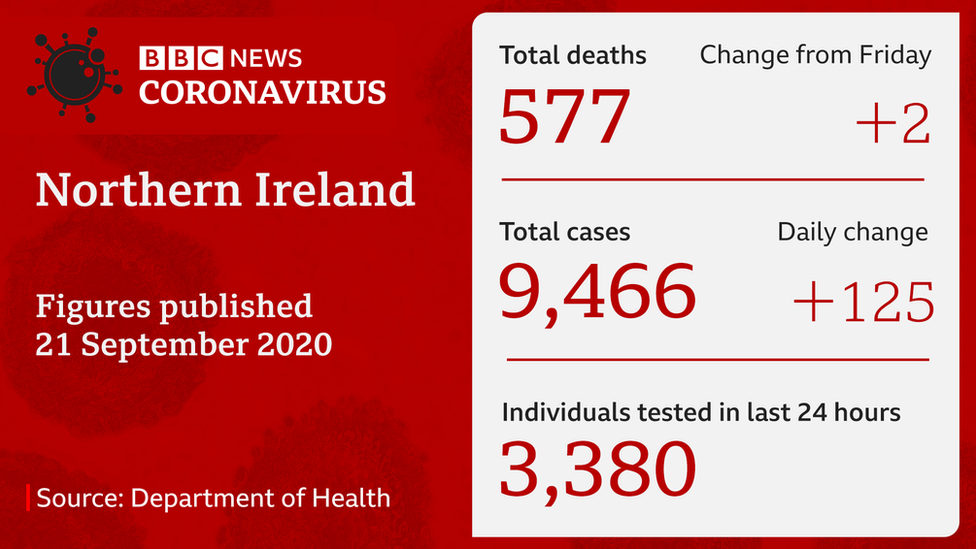
'Everyone must play their part'
In a social media post, Health Minister Robin Swann said "important decisions to be taken in the days and weeks ahead".
He added that "everyone must play their part by following public health advice".
The minister's comments comes as Health Secretary Matt Hancock warned the UK was facing a "tipping point".
"If everybody follows the rules then we can avoid further national lockdown," Mr Hancock added.
On Saturday, the highest number of people tested positive for the virus in Northern Ireland since the Department of Health rolled out its current testing model.
There were 222 positive cases and then another 176 cases confirmed on Sunday.
On Monday, with a further 125 cases confirmed, 9,466 people have now tested positive for Covid-19.
The death toll in Northern Ireland now stands at 577.
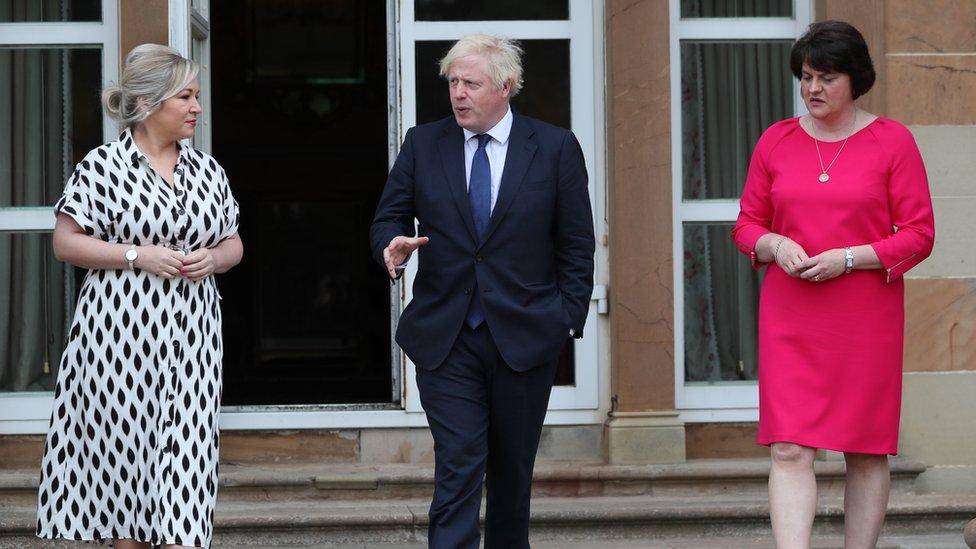
Boris Johnson spoke to Arlene Foster and Michelle O'Neill about the challenges facing NI during the pandemic
Mrs Foster and Ms O'Neill spoke to Prime Minister Boris Johnson on Monday.
It is understood they asked for an extension to the furlough scheme and additional public finances to deal with challenges facing Northern Ireland during the coronavirus pandemic, but they received no commitment from the prime minister.
- Published18 September 2020
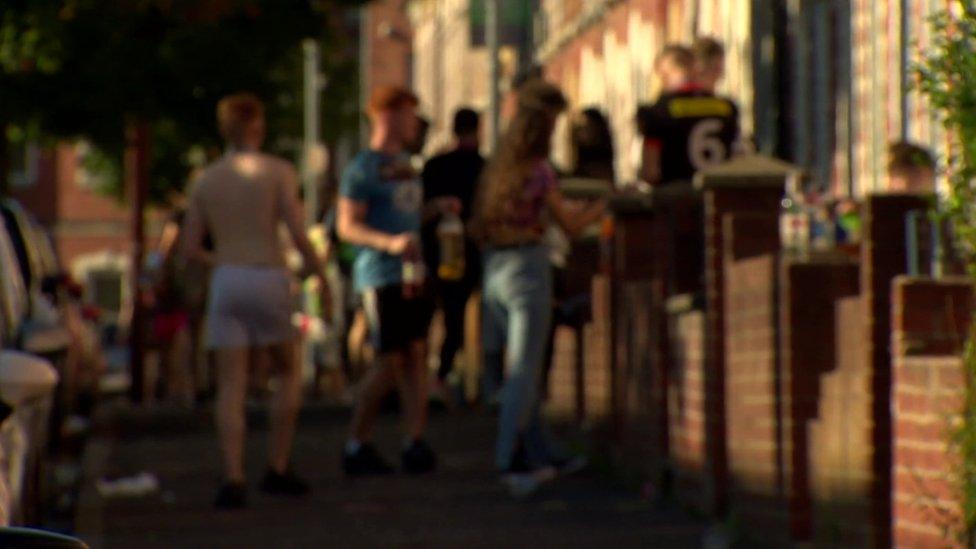
- Published20 September 2020
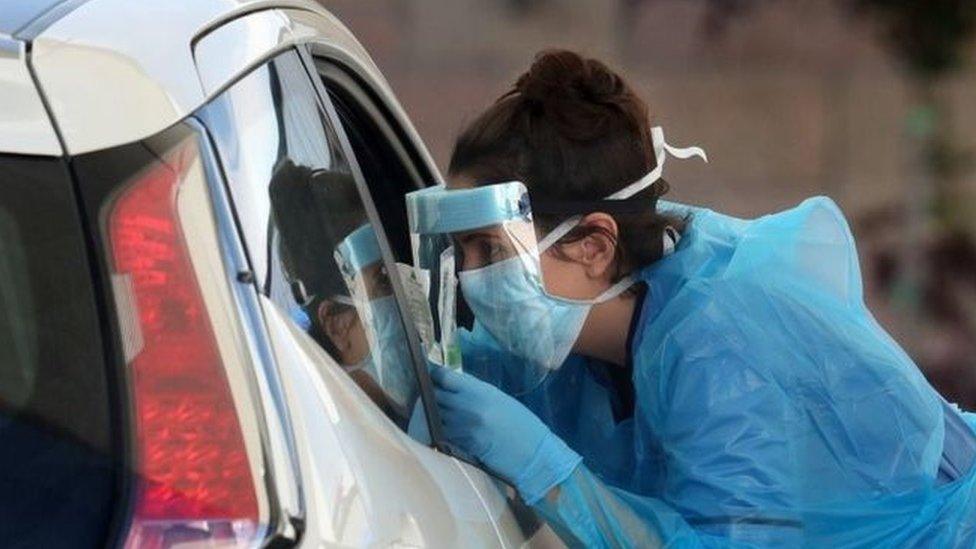
- Published20 September 2020
